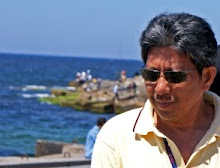Me sure not many of us have heard of his name or let alone associate him with the “opening” of one of the great cities in the Islamic world.
To begin with, Sultan Muhammad al-Fateh or Muhammad II “the Conqueror” was the Turkish Ottoman Sultan who liberated the city of Constantinople from the clutches of the Christian Orthodox ruler in the mid 15th century (on May 29, 1453 A.D. to be exact) and subsequently changed the name of the city to Islambol – meaning “lots of Islam” or popularly known today as Istanbul. Perched on the crossroad between Europe and Asia and separated by the narrow strait of Bosphorus in-between, Istanbul is the only metropolis in the world that is situated on two continents.
The conquest of Sultan Muhammad al-Fateh was the more significant to the Muslims at that time as well as now as it was seen as the fulfillment of the prophecy of the Prophet Muhammad (pbuh) some 800 years earlier, in which Muslims believed to be true –and eagerly awaits its happening.
On Constantinople, the Prophet had said that it will one day be liberated by the Muslims who is led by “a good ruler with a good army and a good populace”. Truly believing in the prophecy, the Muslims, since the times of the early Caliphates, had sent numerous expeditions to try and open up the city, but none had achieved an all out victory until it was the turn of the youthful Sultan Muhammad al-Fateh who finally managed to liberate the city in a classic 53 days siege of Constantinople. It was said, he was only in his early twenties when Constantinople fell to the Muslims.
It took some years before the prophecy was finally realized, nonetheless, the more poignant matter to note was that it came only after the three elements mentioned in the prophecy came into play during the reign of Sultan Muhammad al-Fateh. Since he was very young at that time, it can only be concluded that the preparation for the ultimate “display of prowess” had been meticulously laid out even before he was born to this world by the generations preceding him – to prepare him to be a good ruler, to raise a good army and at the same time to educate the masses to be good Muslims.
The lesson learnt here is whether nowadays, we, as Muslims, have the same dexterity and resoluteness as exemplified by Muhammad al-Fateh and his generations - to prepare ourselves and our society to be good and thus ready to take up the myriad challenges in doing what we really believe in? No doubts the answer would either be “yes” or “no”, depending on which side of the divide we are in.
The arguments would always be lively and unending amongst the Muslims or for that matter the population as a whole, as to which methodology or path to be adopted in order to save the humanity or the society from its own folly.
But the Truth always remained the same, if we follow the path already paved by the righteous generations before us and start for once to believe in our own basic instinct - as given by God to mankind, we will surely be rightly guided and be well on our way towards the path of our own salvation.
Genset 20 KVA: Sumber Daya Listrik Tangguh untuk Berbagai Kebutuhan
-
Listrik adalah salah satu kebutuhan pokok dalam kehidupan sehari-hari
kita. Hampir semua aspek kehidupan modern bergantung pada pasokan listrik
yang and...
2 years ago


